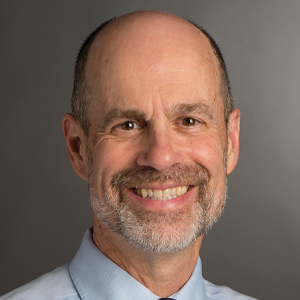
Turning points
Recently I was talking with a colleague who mentioned how a single conversation with his mentor during his senior year of college completely redirected his life. I then shared a similar experience with him. I started thinking how much it would have meant to me as a 21-year-old senior to hear both of our stories.
I then began to wonder how many of my colleagues could share similar experiences, so I reached out to a few to ask how mentors influenced their experiences and decisions — specifically during their last two years of college.
As we transition out of COVID-19, life is very uncertain, and many of us are struggling with our mental health and with finding a sense of purpose or direction. The target audience for this article includes both students and mentors: to offer students hope and confidence to listen for encouragement, and to remind those in a position to mentor that our words can have great impact.
I have included my story and stories from seven colleagues from academia and industry. These stories all demonstrate how effective mentoring during college can shape future careers, but some include unexpected twists and turns.
The first five colleagues share how conversations and training in traditional lab and class settings were instrumental in their successful careers. The last two are from colleagues who also have remarkable careers but had very different mentoring experiences. I will let you enjoy their stories and then provide a few concluding thoughts.
Overcoming a bad experience
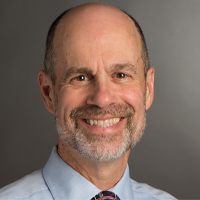
The summer before my senior year, I applied for a research position in a medical center to help me decide if I wanted to go to medical school or graduate school. I ended up having a negative experience in the research lab and was not even considering graduate school, instead focusing entirely on going to medical school.
Professor Dale Williams, my mentor at Oral Roberts University, approached me one day and simply said, “Paul, you should really consider applying to Ph.D. or M.D./Ph.D. programs. I think you would do well there.”
I took his advice, applied to Ph.D. programs in biochemistry and have found this a wonderful path.
Paul Craig, Rochester Institute of Technology
A confidence-building task
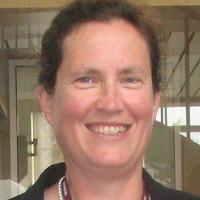
As an undergraduate working in the research labs of Professors Joe Sherma and Dave Husic at Lafayette College, I gradually had developed some confidence in my ability to perform experiments. But the ups and downs of research are challenging for an undergraduate to manage, as there is so much more failure than we are used to from doing labs in classes. I questioned whether I was doing a good job, because some experiments didn’t work.
In the fall of my senior year, Professor Sherma, then the head of the chemistry department, purchased a new piece of equipment that was computer-controlled (a new thing at the time). He paid me a small stipend to read the manual, figure out how to use the instrument, and write an instruction manual for him and the other lab members to use.
This gave me confidence that I had valuable skills that could be useful for other scientists as I headed off to graduate school the next year.
Kristin Fox, Union College
Permission to change gears
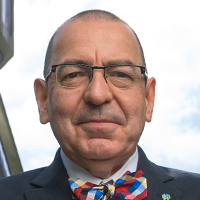
As a summer undergraduate research intern between junior and senior year, I was asked by my nuclear physicist mentor to join an interdisciplinary collaborative team that brought plant scientists together with physicists. Our objective was to use image processing of electron micrographs to understand the molecular architecture of plant viruses from the potato X virus family.
By the end of the summer, I realized that my knowledge of physics, applied mathematics and Fortran programming (self-taught) had allowed me to make substantive contributions to the project. My plans for graduate school changed dramatically.
Instead of doctoral training in mathematical physics, I made the jump into physics applied to biology and pursued a doctorate in structural biology at the University of Oxford and never looked back.
I am now in the midst of a third career in data science/structural bioinformatics. Previously, I spent a dozen years as a structural biologist in academe, followed by a decade working as a drug hunter in the biopharmaceutical industry.
Stephen K. Burley, RCSB Protein Data Bank
Learning to pay it forward
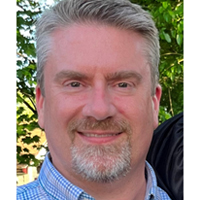
I went to Drexel University and majored in chemistry from 1990 to1995. Drexel always has had a very robust co-op student internship program, and, as a chemistry major, I was fortunate enough to do three internships with Steven A. Carr, who is currently the senior director of proteomics at the Broad Institute in Cambridge but then was a research investigator at GlaxoSmithKline (SmithKline Beecham at the time).
Steve is an expert in proteomics and protein-based mass spectrometry and welcomed me into his group when I was a 20-year-old college sophomore. He not only took the time to mentor me in this new field of protein mass spectrometry (my chemistry professors at Drexel at the time didn’t, even though you could use mass spec to investigate proteins) but also showed me how biology and analytical chemistry could make significant impacts for patients in a professional drug-discovery environment.
Steve set a high bar for my performance, emphasizing attention to detail and scientific rigor but always encouraging me to challenge myself and think big.
This experience led me to change my major from chemistry to biochemistry and propelled me toward graduate school and my ultimate goal of working in the pharmaceutical industry, which I have been lucky to do at Novartis for the past 10 years.
I can say that Steve’s mentorship and the other mentors from his group there changed the course of my life and helped propel me to the career I have today. I never have forgotten that generosity and his example as I strive to pay it forward, now that I am a leader, to help others just starting out.
Scott Busby, Novartis Institute for BioMedical Research
‘A taste of what life as a scientist might be like’
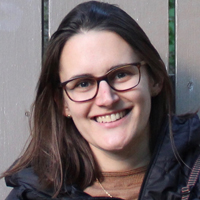
I would like to thank Alanna Schepartz for her mentorship during my days as an undergraduate at Yale. I first met Alanna when I enrolled in her seminar and companion lab course Chemical Biology for Sophomores. For the first time, in this course I had a taste of what life as a scientist might be like: reading new literature and discussing it with colleagues, proposing new experiments and then very slowly trying to execute those experiments. This was a captivating experience, and I enthusiastically joined her lab as a research assistant.
While I sought out Alanna’s advice at key junctures — when choosing a graduate program, a thesis adviser and a postdoc adviser — the most influential part of her mentorship was providing an early opportunity to experience life as a researcher in chemical biology.
Lynn McGregor, Novartis Institute for BioMedical Research
‘Faith in me before I had faith in myself’
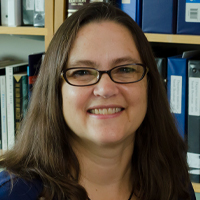
I was sure that the Olive M. Lammert Prize was a mistake. This prize was for a chemistry major who was headed to graduate school, and my plan after graduation from Vassar College was to teach high school.
I tried to convince my professors that the Lammert prize should be given to someone else, but even the otherwise sensible Professor Miriam Rossi remained unconvinced. She told me that I would find my way to graduate school, and of course she was right.
My professors had faith in me before I had faith in myself, and I carried that faith with me and relied on it during challenging times. Having someone believe in you is a powerful thing.
Cathy Drennan, Howard Hughes Medical Institute and Massachusetts Institute of Technology
It only seemed like a loss at first
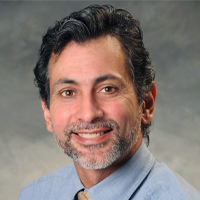
I’ve had many mentors in my life. Each one shared their expertise, insight and guidance in a kind and selfless way. Interestingly, perhaps my most critical mentoring moment occurred far from an academic setting.
During my undergraduate years, I worked for a large retail chain, and during the spring of my final semester, an assistant manager position opened up. I was the obvious choice, but my supervisor selected someone else. Frustrated and disappointed, I confronted him.
His answer was simple: “Twenty years ago, I earned my bachelor’s and master’s degree in social work while working here. Then they promoted me. It was easy to stay, and so I did. It was the right choice for them but a bad choice for me. Even though promoting you would have been best for me, I couldn’t let you make the same mistake.”
It was then that I realized that mentoring is about doing the right thing for the mentee and only the mentee.
Phillip Ortiz, The State University of New York
Taking stock
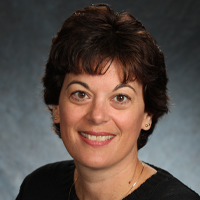
When I was in college, I declared chemistry as a major late, and there were a number of very talented students in my class. Those students got most of our professors’ attention, and I didn’t have any mentors at that point in my career. What I did have was a great relationship with the manager of the chemistry stockroom, Ronald Smith.
Ron hired me when I was a sophomore, and I started out with rudimentary tasks. We did the setup and the preparation for all of the introductory lab courses at Bowling Green State University. When I was a senior, I had sufficient experience that Ron gave me a great deal of responsibility. He assigned me my own lab course, for which I was the sole person responsible for the prep. In addition, he recommended that I be hired as a teaching assistant for the nursing chemistry course (a position that usually was filled by a graduate student). Finally, he was able to persuade the department chair to allow him to work on switching over to a computerized inventory, because he informed the chair that I was capable of performing some of his duties while he worked on the project.
This was perhaps not the answer you were expecting. But Ron played a big part in my chemistry education and gave me confidence that I could perform laboratory work capably and that I could be a competent laboratory instructor.
Kathleen Cornely, Providence College
Concluding thoughts
These are our stories about how mentors helped us along our paths. The stories don’t include the many challenges we faced along the way (perhaps that should be another essay) — just the turning point and the present situation. In some cases, the stories have an “and they lived happily ever after” feeling, but others hint at the struggles that happened then and continue on different levels.
These stories are from four women and four men, some from underrepresented groups, but as I read them, I realize that some stories are missing.
Have we overlooked introverted students or those who did not have a high GPA after one or two semesters as we looked for the rising stars? How many times have I made the following statement? “This student struggles in lecture but is really good in the lab.” And then, in my mind, I consigned that student to a technician role or mindset without spending the time to really get to know them as my mentors took the time to know me.
I feel the need to include some action items to wrap things up.
For students seeking mentors:
- Seek to build relationships with your professors and supervisors at work.
- Join a research group and really get to know all the people.
- You may find mentors in surprising places. They may be faculty, staff or administrators from different departments — or even people from an off-campus job.
For mentors:
- Reflect on the people who helped you, and emulate their impact in your own mentoring.
- Build relationships with all kinds of students, not just the talented extroverts.
- Remember the impact of your words and your time on your students — you may never know when one of those students is at a critical turning point in their lives.
Enjoy reading ASBMB Today?
Become a member to receive the print edition four times a year and the digital edition monthly.
Learn moreFeatured jobs
from the ASBMB career center
Get the latest from ASBMB Today
Enter your email address, and we’ll send you a weekly email with recent articles, interviews and more.
Latest in Careers
Careers highlights or most popular articles

Decoding how bacteria flip host’s molecular switches
Kim Orth will receive the Earl and Thressa Stadtman Distinguished Scientists Award at the ASBMB Annual Meeting, March 7–10, just outside of Washington, D.C.

Defining JNKs: Targets for drug discovery
Roger Davis will receive the Bert and Natalie Vallee Award in Biomedical Science at the ASBMB Annual Meeting, March 7–10, just outside of Washington, D.C.

Upcoming opportunities
No matter where you are in your career and what future path you aspire to, everyone needs leadership skills. Join ASBMB for practical strategies for building and practicing leadership skills.

Close out ASBMB 2026 with a bang
The closing reception of the 2026 ASBMB Annual Meeting will be held at the Torpedo Factory Art Center in Alexandra, Virginia.

Redefining lipid biology from droplets to ferroptosis
James Olzmann will receive the ASBMB Avanti Award in Lipids at the ASBMB Annual Meeting, March 7–10, just outside of Washington, D.C.

Creating change in biochemistry education
Pamela Mertz will receive the ASBMB William C. Rose Award for Exemplary Contributions to Education at the ASBMB Annual Meeting, March 7-10 in Washington, D.C.

